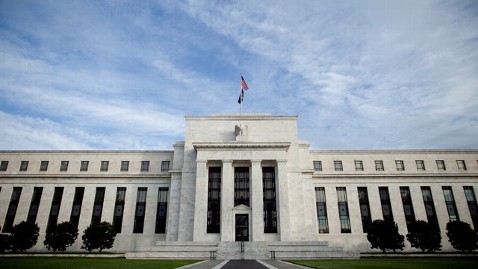Dow Jones Industrials Soar on Central Bank Action

(Andrew Harrer/Bloomberg/Getty Images)
U.S. stocks soared this morning after the Federal Reserve in a surprise move cut the cost of emergency dollar funding for European banks as part of a globally coordinated central-bank effort to ease the sovereign-debt crisis that has roiled markets for months.
The Fed said in a statement today that it slashed the so-called dollar overnight index swap rate to 50 basis points from 100 basis points, or 1 percent, until Feb. 1, 2013.
“The purpose of these actions is to ease strains in financial markets and thereby mitigate the effects of such strains on the supply of credit to households and businesses and so help foster economic activity,” the central banks said in a joint statement.
The effort is being coordinated with the European Central Bank, the Bank of Canada, the Bank of England, Bank of Japan, and Swiss National Bank.
The Dow Jones industrial average surged 401 points, or 3.4 percent, at 10:30 a.m. in New York.
“Obviously, these moves are designed to increase the flow of dollar liquidity to European banks, which are struggling to attract short-term funding because of questions about their exposure to potential losses on holdings of European sovereign bonds,” said Paul Ashworth, chief U.S. economist at Capital Economics.
He explained that Wednesday’s move does not expose the Fed to propping up ailing European banks.
“The ECB actually makes the loans to these banks, so the Fed is not on the hook for any losses if a European bank failed,” Ashworth told the Associated Press.
The central bank move is designed to free up credit, which has tightened as countries in Europe attempt to get their debt under control and stave off a possible breakup of the euro zone.
Guy LeBas, chief fixed income strategist with Janney Capital Markets, said the Fed and other central banks reduced the cost of providing cash, without changing its availability, to overseas institutions.
“Swap lines are a cross border way to provide cash,” he said.
The Federal Reserve lends dollars to the European Central Bank which would in turn lend to European banks. The challenge was the rate at which the Fed and therefore the ECB lent was fairly high, LeBas said, so banks were not taking advantage of this lending program. This new move reduces the cost it takes for European banks to borrow indirectly from the Fed by about a half percent.
“The hope is some institutions will take advantage of liquidity by the Fed at a reasonable cost,” LeBas said.
In other words, the move from the global central banks helps reduce the risk that a lack of liquidity will imperil the European financial system, he said.
“It takes a tail risk off the table,” but it may be more helpful “in spirit than in action,” LeBas said.”The global response proves the central banks recognize the magnitude of risk facing the European countries.”
Markets in Europe rallied, with the German DAX rising 4.2 percent and UK’s FTSE up 2.9 percent.
U.S. markets were also boosted by a report from payroll processor ADP that companies added 206,000 jobs in November, more than twice the number that was expected.
ABC News’ Susanna Kim and the Associated Press contributed to this report.